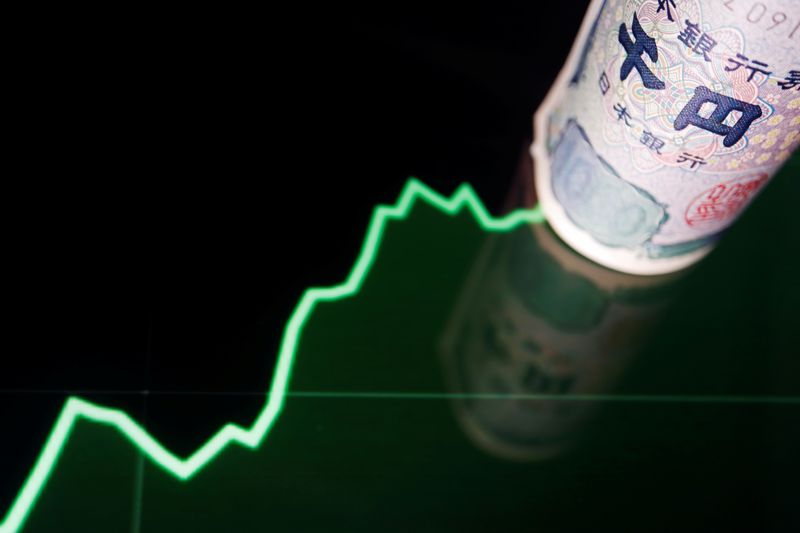By Leika Kihara
WASHINGTON (Reuters) -Bank of Japan Governor Haruhiko Kuroda said on Wednesday fast and one-sided moves in the yen would be bad for the economy, signalling the speed of its fall - rather than levels - was the key concern for policymakers as the currency plumbs fresh 24-year lows.
Kuroda also said the dollar's broad-based gains will likely be among the key topics of debate at this week's G20 and International Monetary Fund (IMF) meetings in Washington.
"Probably in Washington D.C. this time, lots of emerging economies will complain about the almost universal rise in the dollar against other currencies," which made them raise interest rates more than deemed appropriate for their economies, he said at an annual meeting of the Institute of International Finance.
The dollar hit a fresh 24-year high of 146.80 yen on Wednesday after the release of U.S. producer price data that was stronger than expected. It is now above levels, just near 146, that triggered Japan's currency intervention last month.
Kuroda said the government's decision to intervene in the currency market to stop one-sided declines in the yen was "quite appropriate," adding the BOJ will continue to monitor the impact of the currency's moves on the economy.
"Yen depreciation may have a good impact on the macro-economy as a whole, but there are some sectors which are suffering" from the weak yen, Kuroda said.
"If the currency's movement is so fast and (one-sided in) direction, probably caused by speculation, that would be bad for the economy because that would make corporate planning more difficult," he said.
Kuroda and Japanese Finance Minister Shunichi Suzuki are both in Washington to attend the G20 and IMF meetings, where policymakers face the challenge of addressing rising inflation without pushing the global economy into recession.
Japan intervened in the currency market last month to arrest sharp yen falls, driven largely by the policy divergence between aggressive U.S. interest rate hikes and the BOJ's resolve to keep monetary policy ultra-loose.
Kuroda reiterated the BOJ's commitment to keep interest rates ultra-low, arguing that the economy has yet to recover pre-pandemic levels and inflation remained modest compared with Western economies.
While saying he was hopeful that inflation will stably rise toward 2% in coming years, Kuroda said the BOJ must be cautious in withdrawing stimulus too soon.
"Wages are certainly rising now but insufficient to guarantee 2% inflation in a sustainable and stable manner," Kuroda said.
"You cannot simply jump to the conclusion that we will be able to achieve 2% inflation in two years, or one year's time, so that we can change monetary policy now. That is not correct," he said.
The BOJ remains an outlier among a global wave of central banks tightening monetary policy to combat soaring inflation, as it focuses on underpinning a fragile economy.

While consumer inflation has exceeded his 2% target, Kuroda has stressed that recent cost-push inflation must be accompanied by higher wage growth to consider tweaking ultra-easy policy.
Kuroda repeated his view Japan's core consumer inflation will likely slide back below the BOJ's 2% target next fiscal year with the dissipation of one-off effects, such as rising fuel costs.